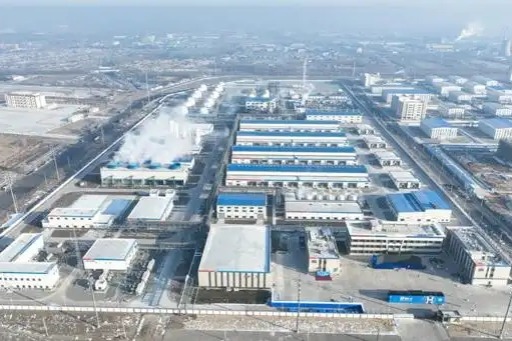'Trade hack' could upend global economy, expert warns

US tariffs are not traditional trade mechanisms designed to produce economic solutions, but a deliberate "hack" of the global trading system driven by a grievance-based narrative, an economics professor argues in a new book.
Richard Baldwin, a nonresident senior fellow at the Peterson Institute for International Economics in Washington and a professor at IMD Business School in Switzerland, said the tariffs act as a "political placebo "for domestic audiences rather than address structural economic issues.
"If you think about it as a trade policy to fix economic problems, it's incoherent; but as a policy to address grievances, it's perfectly coherent," Baldwin said at a recent event hosted by the Peterson Institute in Washington.
His book, The Great Trade Hack, suggests that the world could split into competing trading blocs — such as the United States, the European Union and China, with escalating tariffs eroding World Trade Organization rules, leading to uncontrolled trade conflicts. Another possibility is the US becoming a more closed economy while the rest of the world moves forward.
The tariffs imposed in April mark a historic shift, signaling the end of the US-led trade era that began in 1947, Baldwin said. "I think your grandchildren will be reading about April 2 in the history books as the beginning of the post-American trade leadership era."
Unlike previous tariffs targeting specific issues or partners, the latest levies broadly violate WTO commitments and free trade agreements, effectively dismantling decades of US trade promises with a single stroke, Baldwin said. He described this as a "war on the rules-based trading system by the largest trader in the world" — not a conventional trade war but a systemic disruption.
At the core of his analysis is the "grievance doctrine", which frames US trade policy as an emotional response rather than a coherent economic objective.
The tariffs are designed to address a perceived "middle class malaise "rooted in globalization and automation shocks, exacerbated by the 2008 financial crisis, he said. However, unlike other advanced economies with robust social safety nets, the US lacks policies such as universal healthcare to cushion these blows, leaving the middle class vulnerable, he added.
'Dramatic' tone
The doctrine portrays the US as a victim of globalist elites and foreign nations that have "looted, pillaged, raped and plundered" its economy, Baldwin said. He highlighted the dramatic tone in this year's US Trade Policy Agenda, which claims the US "saved the entire world" in the last century but now faces declining domestic manufacturing opportunities for the working class.
The report positions US President Donald Trump as the hero who will "annihilate" these challenges.
Baldwin said this narrative is not a strategy, but a mythic tale meant to resonate with domestic audiences. Economic research shows that the tariffs cannot revive manufacturing or fix the trade deficit, he said.
"The American middle class is doing very poorly," he said, citing issues such as the obesity epidemic and deaths of despair. However, protectionism, he added, fails to address these root causes and may worsen economic conditions.
He warned of cascading protectionism in downstream sectors, but remained cautiously optimistic, citing potential pushback if inflation rises, a recession looms, or Congress shifts after next year's midterms.
Baldwin underscored the importance of collaboration over confrontation. He advocated for realistic objectives, institutionalized dialogue, and acceptance of economic differences to help stabilize relations.

Today's Top News
- Experts: Lai not freedom fighter, but a pawn of the West
- Hainan evolves as gateway to global markets
- Opening up a new bridge between China and world
- Tour gives China-Arab strategic trust a boost
- China accelerates push for autonomous driving
- Opening of new gateway can help foster global economic and trade cooperation






























